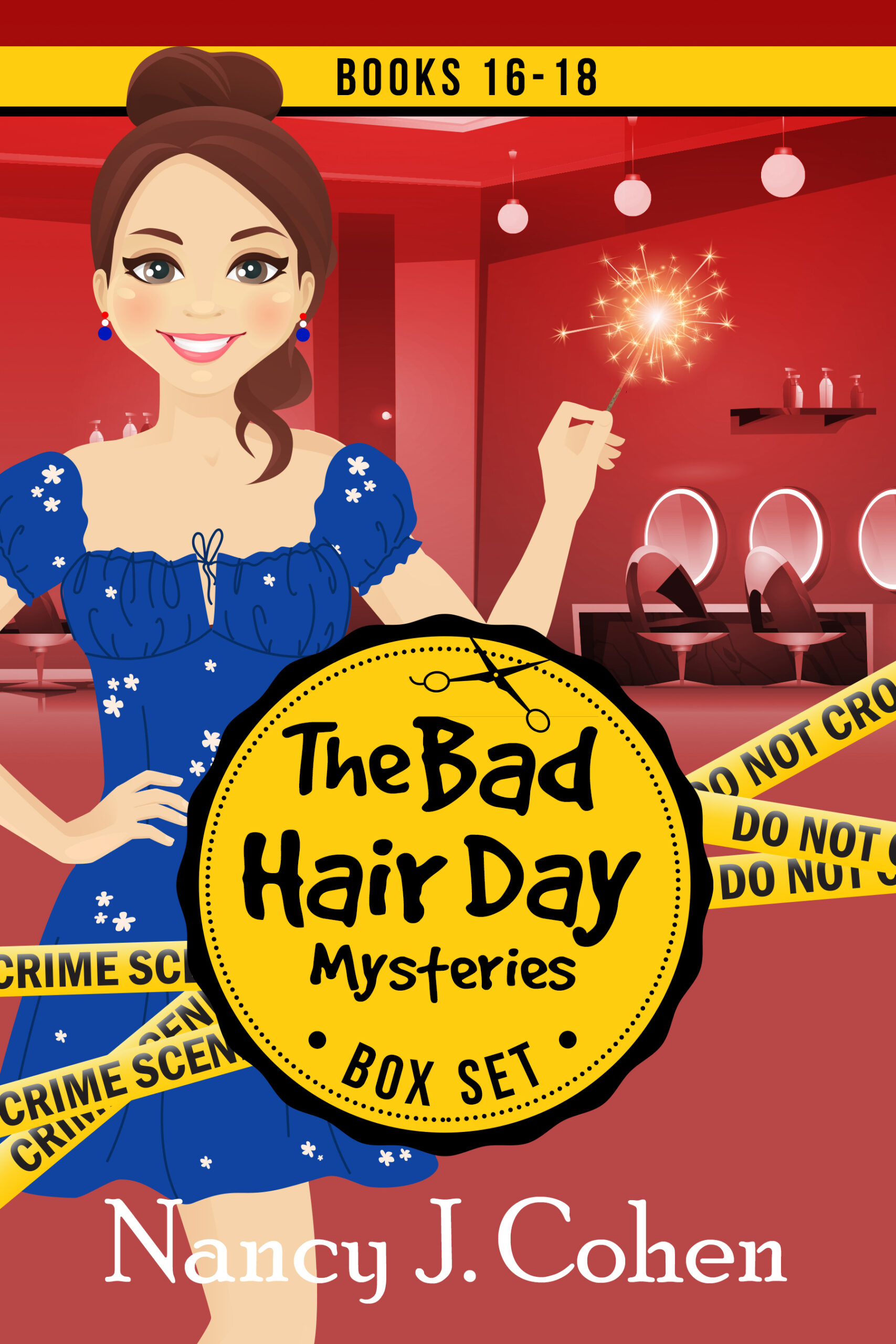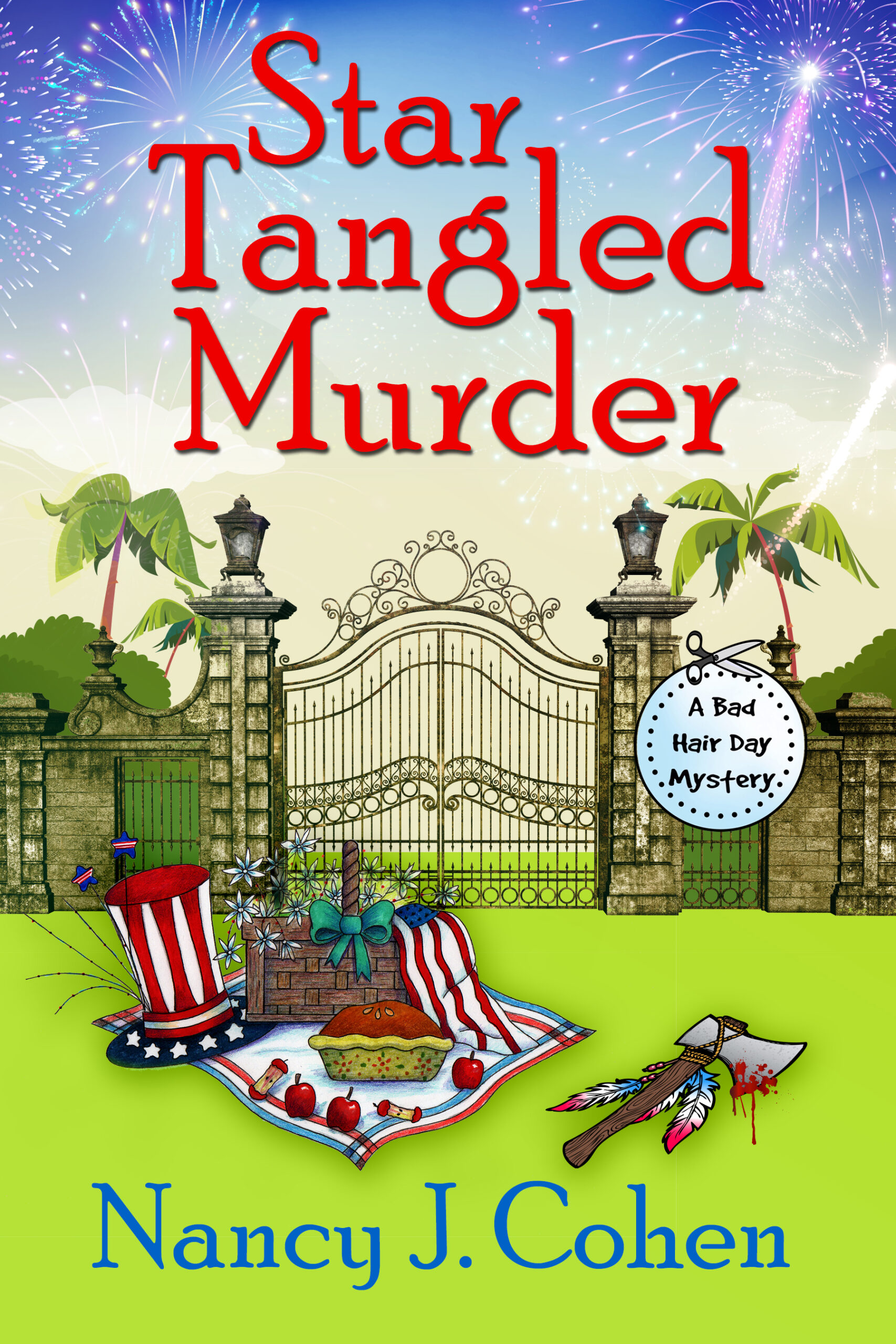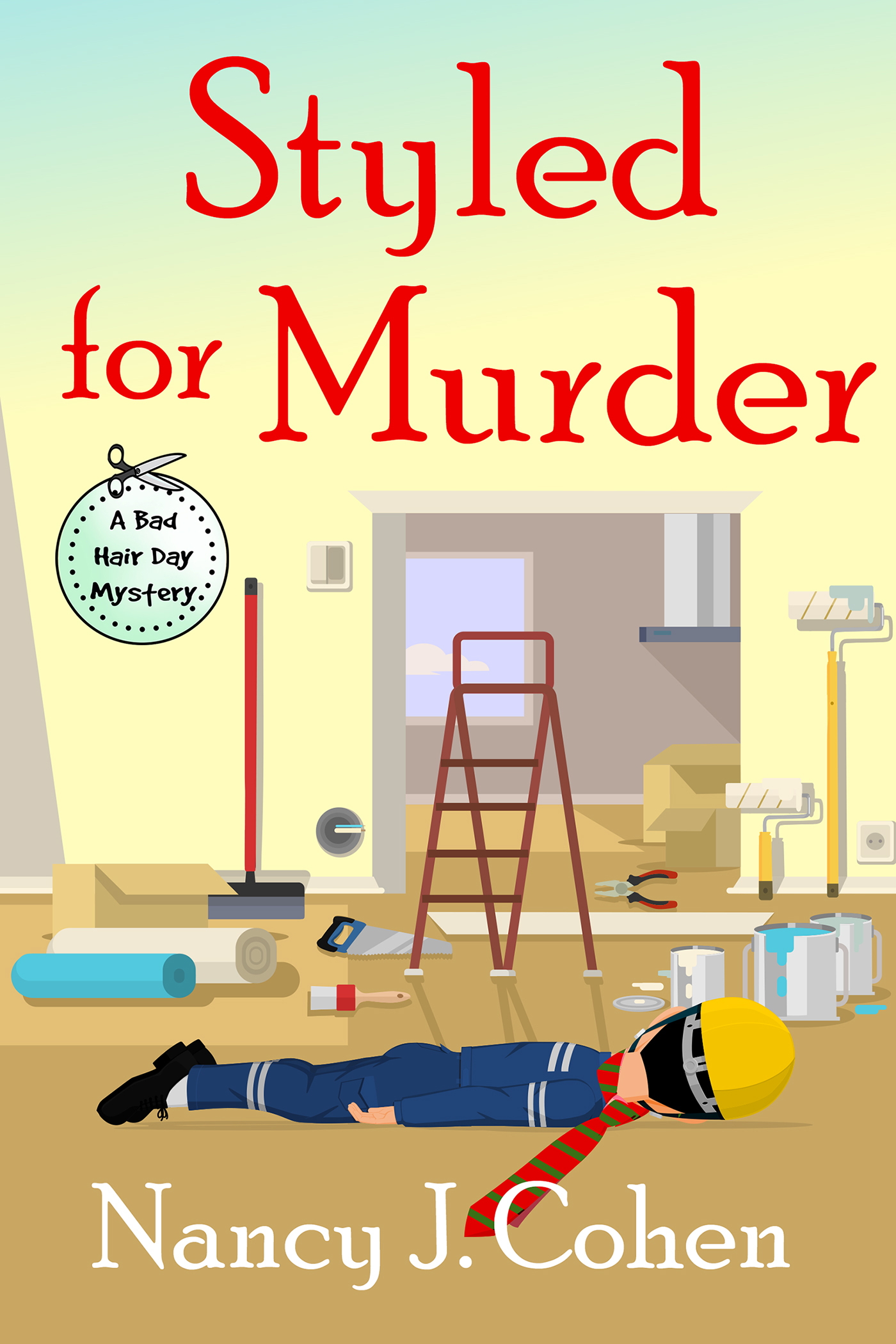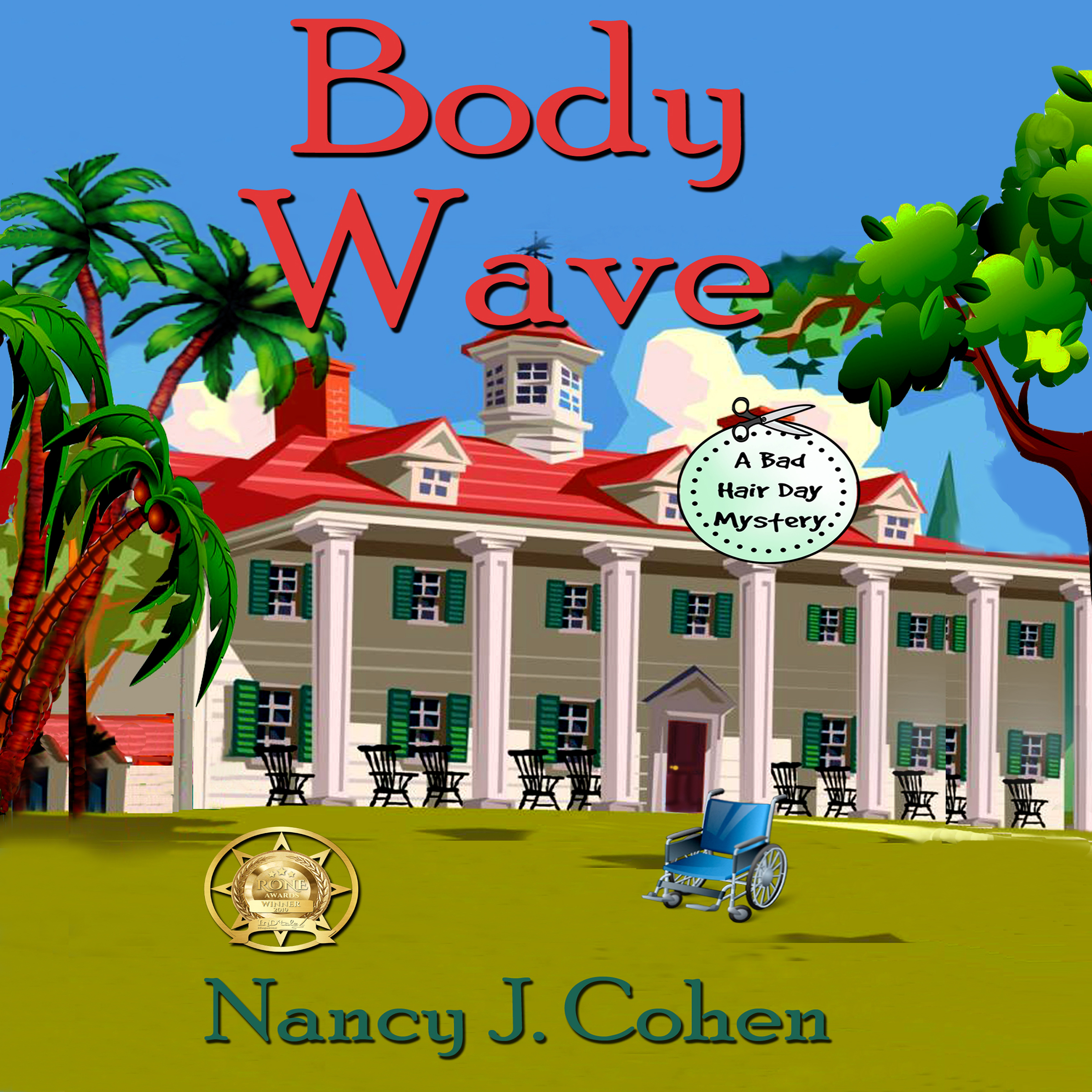I’m in that void in between books. Having finished my Author’s Edition of Body Wave (Bad Hair Day Mystery #4) and scheduled it for launch on June 16, I can start thinking about my next project. And so far that’s all I’ve done—think about it. This would be Bad Hair Day #14. It’s a direct sequel to Facials Can Be Fatal that follows Peril by Ponytail, my September release. I’ve set this summer for plotting with writing beginning in the Fall.
All I have at this point is the victim. I also have a possible motive, but whether this ends up a red herring or the actual reason for the crime is yet to be determined. My suspect pool is limited to work colleagues. Who else can I bring in? Did the victim have any interests or extracurricular activities that might have gotten him in trouble?
I won’t know the answers until I do my character development charts. But first, I have to figure out the timelines, because this guy’s background indirectly intersects with my sleuth’s life. So where was she when they first met? What does she know about him?
Another person is involved who has a closer relationship to our intrepid hairstylist. How is this person related to the crime? Is it random, or does this character have secrets of her own that could provide a motive?
And what about the so-called crime? Is it plausible? What could be the course of events that led to the victim’s death? Who else might be involved? This necessitates research. I have to ask an expert in the field.
As you see, all I have are a series of questions. But these are things I must ask myself to start the plot formulating in my head.
And then there’s the Wow factor for me. What can I learn that’s new and interesting? This is what really grabs my interest and gets me excited about a story. The idea can come from a newspaper or magazine article, news broadcast, personal experience, or tidbit of information that crosses my path. Maybe as I’m delving into the characters, it’ll come to me. Meanwhile, my story antennae are alert.
If all else fails, I can explore my Dirt File, where I keep clippings of interesting articles about people’s crimes. Or I could explore my General Research files where I stick items that might inspire me. I’m hoping these actions won’t be necessary. Maybe I’ll get an unexpected visit from the muse who will bring me the right idea. Then the pieces will start to fall into place, and a story will form. I call this the Discovery phase because you are discovering what the story is about.
Plotting a new book is a daunting task, but one every writer faces when he finishes one book and contemplates the next. I can’t wing it like some authors. I need the story plotted out in advance. I’ll write a synopsis before beginning page one. This entire Discovery process can take me from one to three months. Then the hard work of writing begins.
How about you? When does your story brain put the pieces together?
Contest Alert!
LibraryThing June 1-22
Enter at LibraryThing to win one of two signed ARCs for Peril by Ponytail (Bad Hair Day Mystery #12). Look near bottom: LibraryThing Giveaway
Goodreads Giveaway June 3-14
Enter to win one of two signed paperback copies of Hanging by a Hair (Bad Hair Day Mystery #11)
Goodreads Giveaway
Booklover’s Bench June 4-18
Enter June 4-18 to win a $25 Amazon/BN gift card from Booklovers Bench
Check out our other features, including a weekly giveaway, while you’re there.

























You can start with relatives not spoken to for years, a chance meeting at a bar or party and the oft used hated enemy or bully from school daze.
What does the victim do for a living and who has he/she screwed over knowingly or unknowingly.
That’s all I’ve got this morning. You my dear author will just have to do the rest (and you always do it so well).
I know the guy has a brother who’s a bit of a flake but that’s it for relatives. As for others…yes, I have to flesh out his character a bit more. There’s something definitely unsavory going on in the work environment.
I hadn’t finished your post when my brain suddenly kicked in and I was forced to post my comments. That’s what happens when you get old. At least my vocal filters are still working so I keep my mouth shut and stay out of trouble. LOL I just know this book is going to be a big page turner.
.
Haha…ideas and suggestions are always welcome! You never know what will inspire the writer’s brain.
My brain couldn’t handle your system, I fear. I just start with the main characters–if it’s my mystery series, then they’re already establish. If it’s one of my Blackthorne romantic suspense books, I’ll pull one main character from a previous book and figure out a heroine who can create conflicts while complementing his character. Right now, I’m working on a completely new book, possibly the start of a series, so I’m discovering things as I go, then going back and layering in details (or deleting unnecessary ones) as the story moves along. Usually, my daily question is, “What can I do to them now that will throw a roadblock into their plans?” But I don’t like to do too much research before I start. The more I know about the story, the more boring the writing becomes for me. I figure the time spent probably balances out in the end.
I still have surprises pop up in my stories even with a synopsis as a writing guideline. Then I’ll go back and revise the synopsis. But I need the road map to get started. If I flew by the seat of my pants, I’d fly in circles and get nowhere. Each to their own creative process. 🙂
What a great plan for those of us who are planners. Where did you get all your training to know how to do this?
Years of experience, Kathy! It also helps to attend writing workshops, meetings of our local mystery writers chapter, and conferences. Belonging to a good critique group is also key.
My favorite way to plot a mystery is the method I learned from THE WEEKEND NOVELIST WRITES A MYSTERY. I start with the killer and work backward. It’s fun and makes the actual writing process easy.
At some point I think we all have to work backward to plant the clues.
And you do it well, Nancy!
I love your approach to developing characters. I need to improve in that area. For me, I usually think of the ending or some major twist in a case and work toward it. The characters come alive and sometimes surprise me with their own idea of how things should end.
It’s wonderful when the characters come alive and bring you to places in the story you didn’t anticipate. That’s where story magic comes into play.